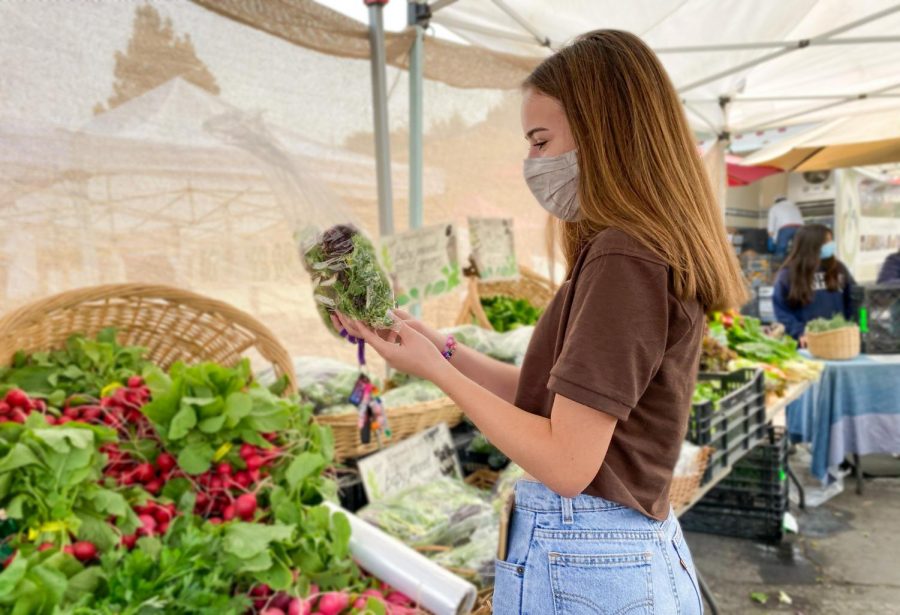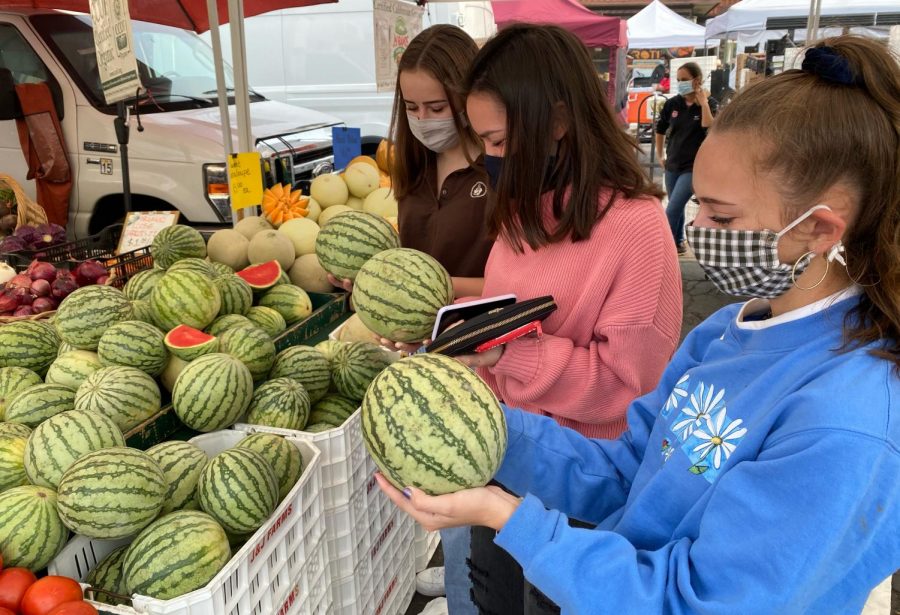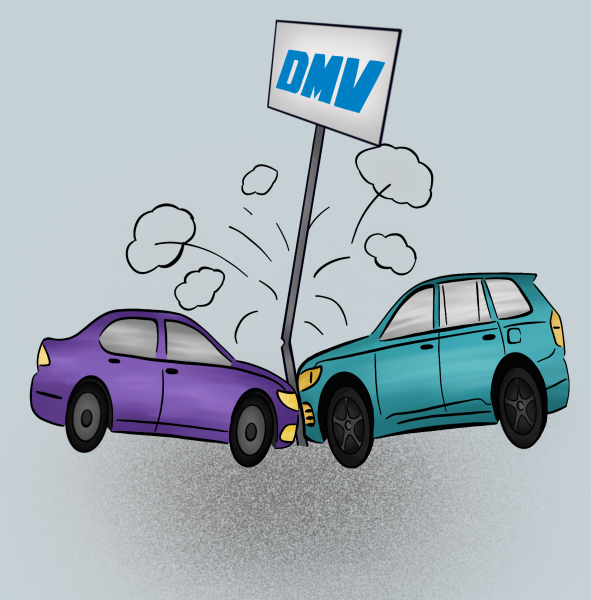Backing Local Businesses Boosts Economy
Junior Ella Erdem shops for groceries at a produce booth. COVID-19 doesn’t stop her from supporting local businesses as she wears a mask to the Moraga Farmers Market.
Members of our community are immensely privileged in various different ways, 1 of our blessings being that the pandemic has generally hit other areas of the U.S. far worse than here. Although we began our school year online, we are extraordinarily lucky enough to have the means to be comfortable in quarantine and to have consistent access to everything and anything we’d ever need.
It seems everywhere I go there is an Amazon truck diligently delivering packages and there are a plethora of Safeways and Whole Foods populating our tristate area with more toilet paper and foodstuffs than we’d ever need. Over the summer, Walnut Creek reopened, and now people consistently walk the sidewalks as they once had with armfuls of shopping bags and masks over their faces.
Capitalist America is alive and recovering, but there remains a wide disparity between which companies thrive and which perish in the era of COVID-19; unfortunately, smaller businesses and family-owned establishments are dying off.
It is of the utmost importance we are thoughtful with how we spend our money; with our community’s support, local businesses will be able to stay open until the effects of the COVID-19 subside.
And when I say shop at local stores, I do not mean the Moraga Safeway; instead, bring your grocery list to the weekly Farmers’ Markets at the Moraga Center on Sundays.
The strawberries you buy at the Farmers’ Market are different from those of large chain grocery stores, as they typically are grown on smaller, family-owned farms in our area, meaning their crops are grown more sustainably overall. According to the California Farmers’ Markets, supporting these operations is a good way to “obtain farm-fresh fruits and vegetables that travel a shorter farm-to-table trip.”
Thus, fewer fossil fuels are emitted into the air on these family farms, as they do not need to transport their goods long distances on large trucks, nor do they employ monoculturalism-derived practices.
Grocery shopping creates constant cash flow from our wallets into the companies that produce our food. We all need to eat, after all. But the worth of a dollar is different when spent at a Safeway versus the Farmers’ Market.
So rather than go to a multi-billion dollar fast-food chain who could survive a recession, order takeout from Golden Palace, Mucho Wraps, Sushi Fighter, and other favorite local restaurants.
Not only would supporting local vendors support small-owned businesses who are at risk of losing their livelihoods, but it also puts money back into our community.
Your donation will support the student journalists of Campolindo High School's The Claw. Your contribution will allow us to produce more issues and cover our annual website hosting costs.

Senior Nicole Kennedy has played volleyball for 8 years and is currently on Campolindo's varsity team. She also played club volleyball at Red Rock East...

Junior Caroline Fitzpatrick has always loved art and photography. She uses her film camera to capture moments whether she's traveling on vacation or exploring...





Taylor Hansen • Sep 22, 2020 at 9:20 am
It’s good to know that you should shop locally to put the money back into the community. I’m trying to find more local restaurants and small-owned businesses to help boost my town’s local economy during the pandemic. I’ll have to find smaller shops to go to lunch or dinner when I’m out. https://www.picklemans.com/locations/kirkwood-missouri.php